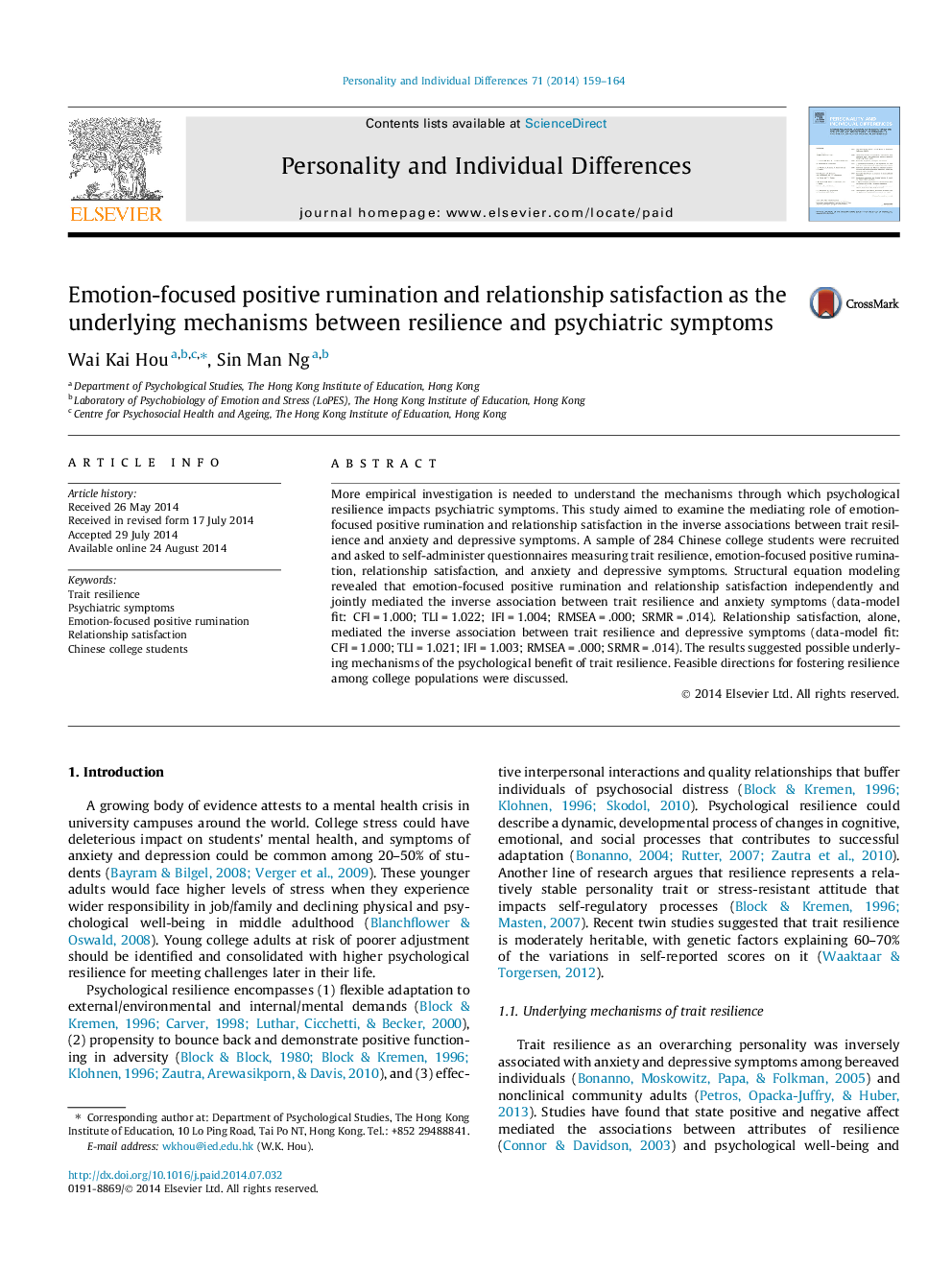| Article ID | Journal | Published Year | Pages | File Type |
|---|---|---|---|---|
| 890383 | Personality and Individual Differences | 2014 | 6 Pages |
•Underlying mechanisms of the benefit of trait resilience need more investigation.•Emotion-focused positive rumination was proposed to be the intrapersonal mediator.•Relationship satisfaction was proposed to be the interpersonal mediator.•Rumination and relationship satisfaction mediated the resilience-anxiety link.•Relationship satisfaction, alone, mediated the resilience-depression link.
More empirical investigation is needed to understand the mechanisms through which psychological resilience impacts psychiatric symptoms. This study aimed to examine the mediating role of emotion-focused positive rumination and relationship satisfaction in the inverse associations between trait resilience and anxiety and depressive symptoms. A sample of 284 Chinese college students were recruited and asked to self-administer questionnaires measuring trait resilience, emotion-focused positive rumination, relationship satisfaction, and anxiety and depressive symptoms. Structural equation modeling revealed that emotion-focused positive rumination and relationship satisfaction independently and jointly mediated the inverse association between trait resilience and anxiety symptoms (data-model fit: CFI = 1.000; TLI = 1.022; IFI = 1.004; RMSEA = .000; SRMR = .014). Relationship satisfaction, alone, mediated the inverse association between trait resilience and depressive symptoms (data-model fit: CFI = 1.000; TLI = 1.021; IFI = 1.003; RMSEA = .000; SRMR = .014). The results suggested possible underlying mechanisms of the psychological benefit of trait resilience. Feasible directions for fostering resilience among college populations were discussed.
